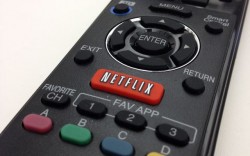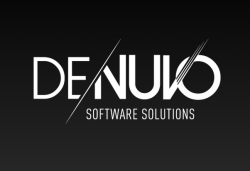Weekly News Roundup (August 26, 2018)
August 26th, 2018So here we are back again, talking about the latest happenings in the world of digital video. Hope you’ve had a great week. And now we’re here to cap it off with our usual roundup.
And if there’s a word to describe the theme of the stories this week, then that word is irony.
![]()
The irony train’s first stop is Disney, who has found themselves on the wrong end of a copyright lawsuit. The estate of Michael Jackson is alleging that the program ‘The Last Days of Michael Jackson’, produced by Disney owned ABC, has used at least thirty different copyrighted works without permission. Disney argues that that the program was a news/documentary program, and as such, they are allowed to use short excerpts for reporting purposes. It also argues, after turning off their irony sensors, that The Michael Jackson Estate is behaving like an overzealous copyright holder and that because of this very important thing called fair use, Disney should receive protection from such lawsuits.
Their exact words were:
“This case is about the right of free speech under the First Amendment, the doctrine of fair use under the Copyright Act, and the ability of news organizations to use limited excerpts of copyrighted works—here, in most instances well less than 1% of the works—for the purpose of reporting on, commenting on, teaching about, and criticizing well-known public figures of interest in biographical documentaries without fear of liability from overzealous copyright holders”
Had the above words come from the mouths of the EFF, then it wouldn’t seem out of place at all. But from Disney? This is the same Disney that sued a childcare center for having pictures of Mickey Mouse and Donald Duck hanging on the walls, the same Disney that sued children’s party entertainers for dressing as an orange tiger and a blue donkey, and the same Disney that took action against people posting photos of their Star Wars toys on Twitter. And these were just the examples provided by The Michael Jackson Estate, in their lawsuit.
The Jackson Estate has called hypocrisy on the whole issue, and they’re probably in the right. But Disney is fighting the good fight on this one, which makes it an odd sensation for those of us watching on the sidelines.
The next stop for the irony train as it blows smoke from its chimney (it’s an old train, apparently) is the MPAA. In a recently made speech, the MPAA’s boss Charles Rivkin tried to link the current dysfunctional state of the Internet, the fake news, hate speech and election meddling, to movie piracy. Apparently, it’s the broken window theory, where visible signs of simple crime leads to more crime and more serious crime. Piracy is the broken window, according to Rivkin.
This kind of grand theory, trying to link piracy to everything that’s bad, not just online, but in the real world, isn’t anything new. I mean from organised crime to child porn, it’s the kind of conspiracy theory that, ironically, wouldn’t be amiss among the fake news stories you read everywhere now.
That’s not the ironic part though. The irony comes later when the MPAA boss claims that the MPAA companies, aka major Hollywood studios, have already fully embraced the digital revolution and streaming and all that cool stuff. If by fully embrace, you mean trying to shackle endless amounts of DRM to everything they can get their hands on, then dragging their feet on downloads and streaming until the likes of Apple and Netflix showed them the way. And now, after much resistance, they have finally seen the way – coincidentally after the likes of Apple and Netflix started giving them hundreds of millions of dollars in revenue every year. If Hollywood had fully embraced the digital revolution, like they say, then how the hell did they let, again, the likes of Apple and Netflix, squeeze themselves into the equation and grab a huge (30%?) slice of the pie when they didn’t need to. Distribution is what gives studios power, but they gave that away to tech companies because their preoccupation with piracy blinded them to the opportunity that was present, and they were also blind to the demand of users who found piracy a more satisfying solution (not just due to the price).
The preoccupation continues though, as Rivkin’s main point of his speech was to point the finger of blame at “online platforms” for not doing enough to protect the film business’s outdated business model, and another finger at legislators for trying to protect innovation by limiting the liability of online platforms that, by their function, could not control or police (nor should they control, or police) the actions of their users.
It’s just so frustrating, sometimes.
======
And with that, we come to the end of another WNR. Hope you enjoyed this one as much as I enjoyed writing it (although I did get a bit angry towards the end, but that happens when you talk about the MPAA). See you next week!









